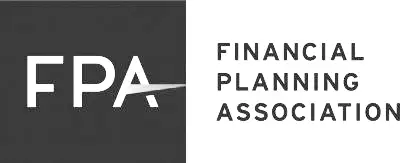Today we’re diving into a specific path that many retirees consider as they move away from the “corporate” world and enter their second act – starting a business.
With increased life expectancy, cost of living increases, and a desire for continued fulfillment, many retirees are excited to begin a new experiment in an area they are passionate about.
Some surveys show the proportion of people starting businesses at ages 55 to 65 has increased in recent years and, at one point, even surpassed the typical entrepreneur age group of 25- to 35-year-olds.
So today we’re speaking to those currently operating sole proprietorships and single-member LLCs OR those considering starting their own business. We will highlight the S Corp business type and provide some details on why this could be an opportunity to explore.
This could be in the form of contracting work, selling their services, or their goods.
A quick online search of the question – “Should I use an SCorp for my business?”– highlights one main benefit: tax savings! While true in some instances, we want to peel back the layers on this topic to help guide you through this decision, highlighting both the benefits of utilizing a SCorp, but also the pitfalls of such a strategy – and how for some business owners, converting to a SCorp may actually leave them worse off.
Savings (and costs) will vary depending on your level of business income and the business you operate so you will need to complete a detailed evaluation to determine if electing SCorp status will be beneficial to you.
First things first: What is your current business setup?
Generally, when first starting a business, owners will operate as a sole proprietorship (due to ease of startup) or as a single member LLC (a little more complex due to ongoing filings but provides additional legal protections that SP do not). Our guess is that the majority of business owners with no employees listening to this operate under one of these two setups.
The IRS considers these two business types as ‘disregarded entities’. Rather than having to file a tax return specifically for the business, all income, expenses, etc. flow through to the taxpayer’s personal tax return – and are included on Schedule C.
What is an SCorp?
The IRS defines S Corporations as corporations that elect to pass all corporate income, losses, deductions, and credits through to their shareholders for federal tax purposes. To qualify:
- Be a domestic corporation
- Have only allowable shareholders
- May be individuals, certain trusts, and estates and
- May not be partnerships, corporations or non-resident alien shareholders
- Have no more than 100 shareholders
- Have only one class of stock
- Not be an ineligible corporation (i.e. certain financial institutions, insurance companies, and domestic international sales corporations).
In order to become an S corporation, the corporation must submit Form 2553, Election by a Small Business Corporation signed by all the shareholders. See the Instructions for Form 2553 for all required information and to determine where to file the form.
Why would you want to elect to become SCorp?
Simply put, tax savings. Or, rather, the potential for tax savings.
When operating as a sole proprietor or Single Member LLC, the IRS considers the owners to be self-employed. As such, all their net earnings (up to the SS income limit) are subject to self-employment taxes.
Self-employment taxes total 15.3%.
- 12.4% is allocable to Social Security tax (up to $168,000).
- 2.9% is allocable to Medicare tax (no limit).
As you can imagine, or perhaps as you have experienced, these taxes can add up – considering they are in addition to ordinary income taxes.
This is where the benefit of the SCorp can come in. SCorp owners who work in the business can be company employees. They must pay themselves a reasonable salary (we will come back to this). Like SP/SMLLC, they will pay FICA taxes on their salary, but additional company profits won’t be subject to self-employment taxes.
Example of a Sole Proprietor vs S Corp Business
As an example, consider a business owner who has net business income of $100,000 and files Single (nonmarried). As a Sole proprietor, their total tax would be approx. ~$23k as all the income is subject to self-employment taxes. As an SCorp (the owner elects to pay themselves a $50,000 salary and pay the other $50,000 as profit), their total tax would be approx.. ~$19k. The difference between the two – $4k – represents the tax savings realized by electing to be taxed as an SCorp.
~$4k+ in tax savings can certainly pique your interest.
Under current tax law, the Qualified Business Income Deduction [QBID] can result in significant tax savings for business owners. This example includes the QBID for both the sole proprietor and the SCorp. Should the QBID go away (currently set to do so in 2026) and tax law revert back to pre 2018, the tax benefits of the SCorp will improve relative to a Sole Proprietor business type.
What is a Reasonable Salary?
Remember: the tax savings generated from this status comes from the profit (income not allocated to your salary) of the business. Many owners are tempted to set this very high while taking a very low salary. Of course, the IRS frowns heavily upon this and there is a high risk of audit should your salary be set too low.
In this example, we assumed a 50% salary and 50% profit split. Is this reasonable? Unfortunately, this is a gray area in which the IRS has not provided direct guidance. When determining how to set your salary, the IRS says your must have a reasonable salary (or reasonable compensation).
How do you do this?
One approach is to ask yourself: if I were to hire someone to do my role, what would I need to pay them? Setting a reasonable salary is highly dependent on your business and is something you should discuss with your accountant.
Now, what’s the catch?
As much as we all love saving on taxes, there is a question of what is being introduced in order to save them.
- Complexity: Operating an SCorp is much more complex than operating a Sole Proprietorship or SMLLC. Given the complexity, we generally recommend hiring an accountant to work with. An SCorp requires both initial setup filings as well as ongoing filings with the IRS and your state Department of Revenue.
- Set Up Costs: you should assure you plan to operate for some time
- Bookkeeping/Payroll: given the owner will be an employee of the business, they must also now run payroll. Fortunately, numerous online services are available to assist in this process, but it certainly adds another ‘job’ to your likely already full plate as a business owner.
- Tax Filing: while SCorp income is not taxed at the corporate level, a tax return must be filed annually (Form 1120S). This return generates a K1, which includes all of the passthrough information to be reported on your personal tax return.
- All in, we estimate that operating an SCorp, assuming you outsource payroll, corporate filings, and tax preparation, will cost ~$2-5k annually. Going back to our example where the business owner saved ~$4k in taxes – you can see that much of this (if not all) was eaten up but newly introduced costs of operating as an SCorp.
Conclusion
Before electing to have your business be treated as an SCorp, it is vital to complete a full review of your business – both current and future expectations – to determine if the tax savings produced offset newly introduced costs. While tax savings are generally present, it is a question of if these tax savings outweigh the costs of operating.
Outline of This Episode
- [0:55] How to know when you have enough
- [2:09] Starting a business in retirement
- [6:02] Why it’s important to understand what an S-corp is
- [10:10] An example
- [14:54] The downside of the S-corp
- [19:39] In conclusion






